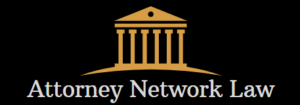Opioids are a class of drugs that act on the brain and nervous system to block pain signals and produce feelings of euphoria. They’re commonly prescribed for pain relief, but are often abused for recreational purposes and can cause addiction. They can also be fatal if taken in high doses or for long periods of time.
If you or someone you know has suffered from opioid use disorder, legal help is available. Many civil legal aid organizations are working with clients affected by the crisis. These programs assist with housing, healthcare, family law and more to promote stability, recovery and independence.
How to Get Legal Help for Opioid Injury
An attorney can help opioid use disorder legal help you claim damages from any party that may be liable for your opioid-related injuries. Depending on the circumstances of your case, liable parties can include pharmaceutical manufacturers who understated the risk of addiction or misled medical professionals, doctors and hospitals that overprescribed these medications, pharmacies that dispensed the medication, and distributors who supplied these drugs to those outlets.
These companies have deep pockets and highly-skilled, tenacious lawyers. You’ll need an experienced lawyer who knows how to launch a detailed, aggressive, evidence-backed campaign to hold them accountable.
A New York City opioid injury lawsuit can result in substantial compensation for the physical and financial harm you’ve sustained. The medical bills, loss of income and irreplaceable moments stolen from you and your loved ones deserve to be paid for. However, you won’t be able to take on these multi-billion pharmaceutical corporations alone.
Getting medical help for opioid misuse and addiction is crucial. Treatment options include therapy, counseling and other medications that can ease withdrawal symptoms. In severe cases, your doctor may recommend a supervised detox program to help you quit using opioids safely.
Opioid addiction is common and can have devastating consequences for your health, wellbeing and finances. It’s important to seek the appropriate care you need and to consider alternatives to opioids if possible.
Opioid addiction is a complicated and serious issue that needs a multi-disciplinary approach. In addition to medical and social services, legal aid organizations play a critical role in confronting the opioid epidemic. If you need legal help, contact a local civil legal aid program. You may be eligible for assistance with healthcare, housing and childcare, family law matters or employment issues related to opioid addiction and overdose. The Department of Justice has recently released guidance describing how the Americans with Disabilities Act (ADA) protects individuals with OUD who are in treatment or recovery from discrimination. To learn more, see the department’s Opioid Crisis: Combating Discrimination publication. The ADA permits policies and procedures, such as drug tests, that are necessary for safety and security. But these must be reasonable and must not discriminate against a person with a disability. The ADA prohibits actions such as refusing to hire or fire a person because of their OUD, including taking medication to treat it. The ADA also protects against discrimination in access to state and local government services and programs.
